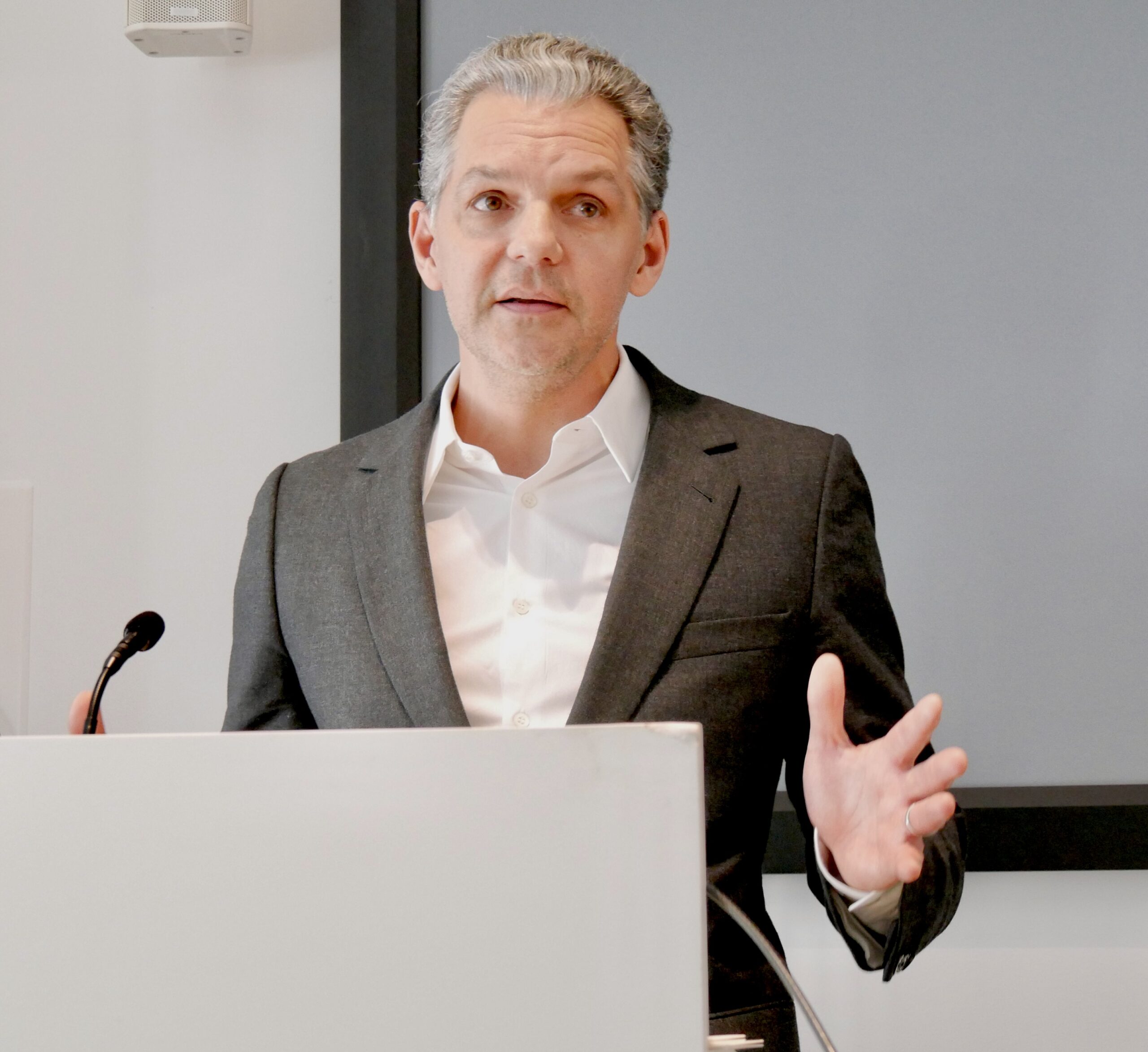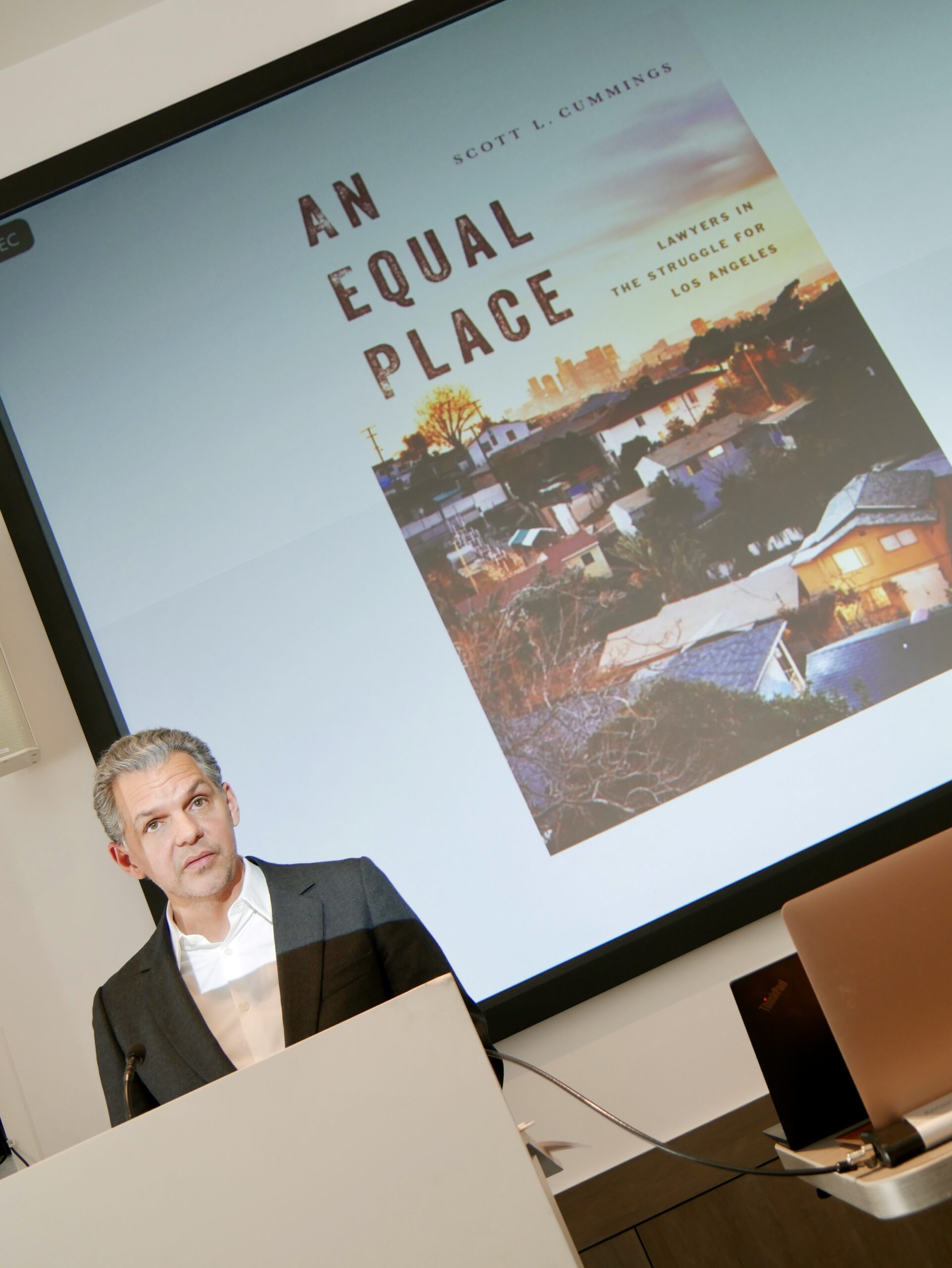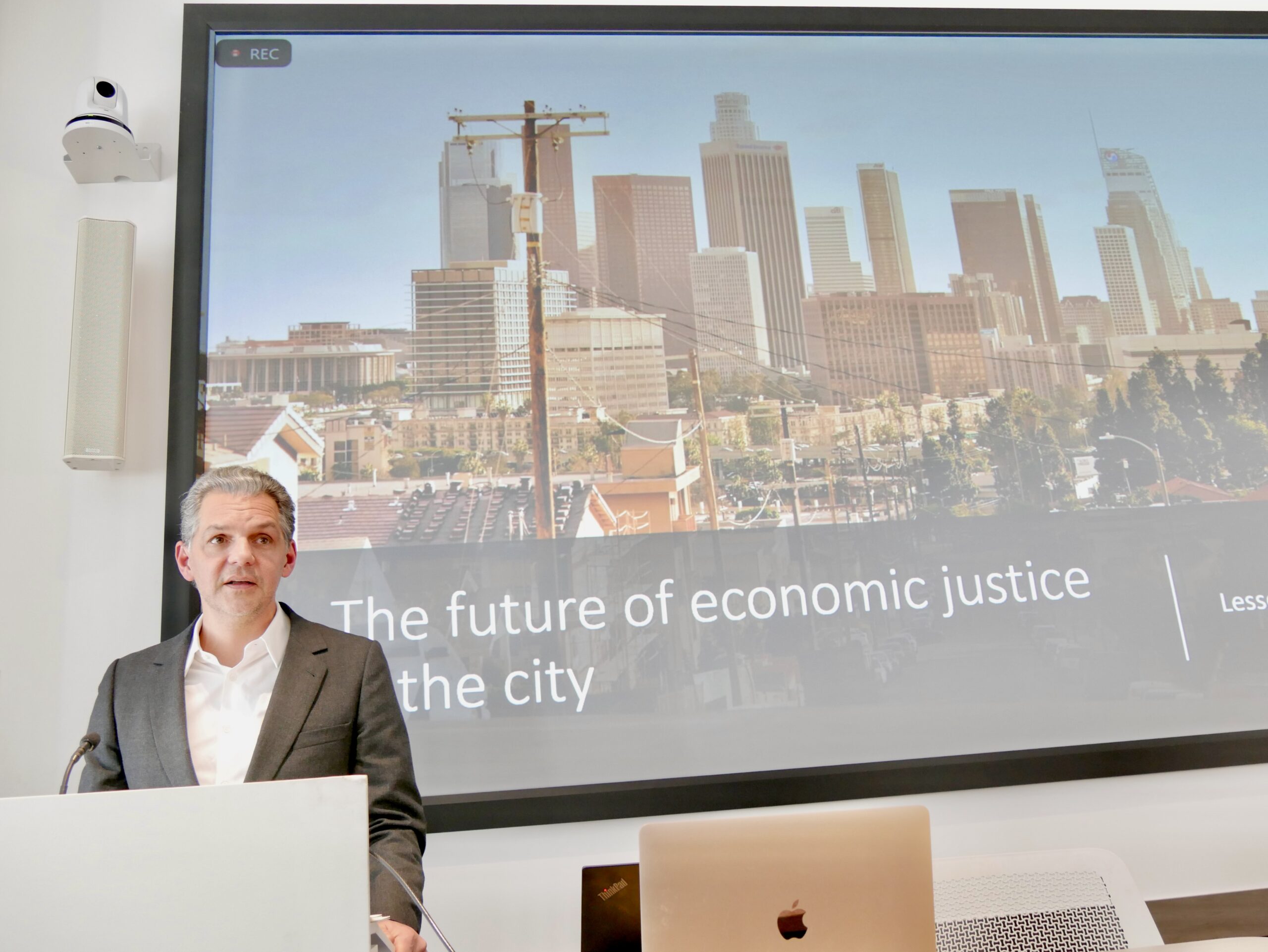Visiting Prof. Scott Cummings Talks Role of Cities in Fighting Inequality

Visiting Professor Scott Cummings discussed the roles that organizers, lawyers, and local laws play in fighting economic inequality in cities like Los Angeles during a lecture in January.
Local laws and lawmaking have been used as effective tools by organizers in Los Angeles to challenge and disrupt structural inequality, said Visiting Professor Scott Cummings in his talk about “Economic Justice in the City.”
“Cities matter,” Cummings said. “They matter as places with specific legal tools that can be used and adapted in the struggle for economic justice.”

Professor Cummings discussed research from his new book on campaigns to improve conditions for workers in Los Angeles.
Cummings, a visiting professor at the Center for Racial and Economic Justice (CREJ), was the keynote speaker for the annual Wiley Manuel Lecture at UC Law San Francisco in January.
Drawing on research from his new book, “An Equal Place: Lawyers in the Struggle for Los Angeles,” Cummings detailed the strategies used by organizers in Los Angeles to try to improve conditions for working-class people, including airport workers and truck drivers.
He cited a 2002 campaign that pressured the city’s airport oversight agency to impose new requirements on airline subcontractors. The new conditions mandated higher pay for workers and union-organizing protections, in compliance with the city’s 1997 Living Wage Law.
Using the threat of lawsuits and political pressure, organizers got the agency to hold up lucrative leases for airlines until they adopted new requirements for subcontractors. This enabled organizers to test and hone an approach that could be applied to other industries, Cummings said.
Although a similar effort to improve conditions for harbor freight-hauling truck drivers in Los Angeles was blocked by the U.S. Supreme Court in 2013, Cummings said those losses can lay the groundwork for future victories. In 2018, the California Supreme Court issued a ruling that made it harder to classify workers as independent contractors and deny them full employment benefits under state law.

Professor Cummings analyzed the effectiveness of recent efforts to strengthen unions and workers’ rights in Los Angeles.
“Struggles for social change in the contemporary U.S. economy and society are legalized all the way down, which means that rising up requires legal strategy, requires legal innovation,” he said.
Cummings, a UCLA Law professor of legal ethics, previously clerked for two federal judges and worked with community groups in Los Angeles to empower and represent marginalized people. Last fall, he taught a seminar on Law, Race, and Economic Justice in the City at UC Law SF. In that course, students explored the role that laws and lawyers play in social movements that challenge inequality in cities.
Launched in February 2020 and led by CREJ Co-Directors Alina Ball and Shauna Marshall, the Wiley Manual Visiting Scholar and Visiting Professor program exposes UC Law SF students to legal scholars with expertise on issues of race, identity, subordination, and inequality in their research.
The special professorship is named after Justice Wiley W. Manuel, a 1953 graduate of UC Law SF. After a long career in law, Manuel was appointed to the California Supreme Court in 1977, becoming the first person of color to serve on the state’s highest court. Justice Manuel died in 1981 at the age of 53 and remains one of the most esteemed alumni of UC Law SF.